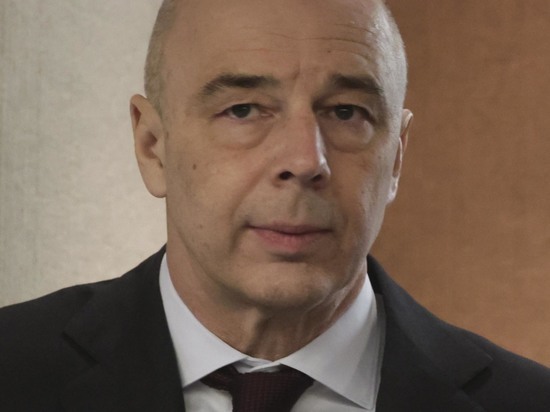The new part of the Russian budget was strictly classified
[ad_1]

Finance Minister Anton Siluanov, speaking at the Federation Council, called the integration of the DPR, LPR, Zaporozhye and Kherson regions one of the priorities of the 2023 budget. The necessary resources, according to him, are provided both for ensuring social standards that are in force in the Russian Federation, and for restoring the economies of new subjects. The head of the Federation Council, Valentina Matvienko, specified that millions of new Russian citizens will receive all social payments and benefits.
On Monday, the Federation Council hosted the first public discussion of the draft budget for 2023-2025. Anton Siluanov noted that the government proceeds from the basic forecast, which assumes an increase in real incomes of the population as early as next year, and a sustainable GDP growth in 2024.
At the same time, the restructuring of the economy in connection with new challenges and sanctions will require an increase in the fiscal burden on business. Although the export of oil, gas, coal and fertilizers has declined markedly, the high world prices for these products, according to the Ministry of Finance, make it possible to withdraw excess income from producers.
Siluanov assured that the increase in the load on coal and fertilizers would be temporary. However, experience suggests that this promise should not be taken seriously: for example, Russian metallurgists, despite the change in the market situation, no one began to release from increased obligations to the budget.
According to the head of the Ministry of Finance, the withdrawal of surpluses from exporters “will not affect the companies themselves,” however, it will allow attracting about 1 trillion rubles to the treasury. rub. In general, budget revenues in 2023 are expected at the level of 26 trillion rubles.
In 2024-25, revenues, as noted by the Deputy Chairman of the Accounts Chamber, Galina Izotova, will remain stable in nominal terms, but in real terms, “unfortunately, they will decrease” – from 19% to 16% of GDP.
Izotova cautiously pointed out to officials the excessive optimism shown when working on the budget. The government calls active consumer demand the main driver of the economy, however, according to representatives of the Accounts Chamber, there are significant risks that the growth rates of demand indicated on paper (from 2.6% in 2023 to 3.1% in 2025) will not be achieved in real life. As the Central Bank noted earlier, against the backdrop of a special operation in Ukraine, the Russians switched to a savings model of behavior and so far do not show a desire to change this model.
The head of the Russian Union of Industrialists and Entrepreneurs, Alexander Shokhin, in turn, reproached the Cabinet of Ministers for the lack of publicity: business learned about some fiscal innovations only now – there were no preliminary discussions with entrepreneurs.
“The draft budget provides for a change in the principle of calculating insurance payments. There were certain agreements on this matter, but now they are not being observed, ”Shokhin complained, pointing out that in a number of companies payments could increase by 3-5% of the wage fund. This will affect the income tax and, consequently, the income of the regions.
Another claim to the budget is its growing closeness. Speakers at the hearings complained that the Ministry of Finance’s reporting is “less uniform and complete than before”, and secrecy extends to information, without knowledge of which it is difficult to assess the situation and make effective management decisions.
The most important secret, which, in theory, should not be a secret, is the amount of spending on the annexed territories. Anton Siluanov called the integration of the DPR, LPR, Zaporozhye and Kherson regions one of the main priorities of the budget, along with the fulfillment of social obligations, technological development, ensuring the combat capability of the army and expanding infrastructure.
“The budget should guarantee the fulfillment of all social obligations of the state to citizens, including the indexation of pensions, benefits, social payments, the minimum wage, as well as various measures to support families with children. At the same time, it is necessary to take into account the formation of four new subjects within the Russian Federation, in which millions of people live – Russian citizens who have the full right to all social benefits and payments, ”said Matvienko, also without specifying the specific parameters of support.
(There is no such secrecy for other subjects: for example, the regions of the Far Eastern Federal District, according to Siluanov, will receive 157 billion rubles from the budget in the next three years).
The minister announced the average pension in the Russian Federation after the indexation planned by the Cabinet, which, apparently, residents of the affiliated regions will be able to count on: this is 21,862 rubles per month. The size of the mother’s capital in 2023 will be 622 thousand rubles for the first child and 822 thousand rubles for the second. The government is also introducing a universal allowance for low-income families with children and pregnant women – it is obvious that this payment will be in demand in new territories.
The head of the Ministry of Finance made it clear that for the time being one cannot count on the return of openness of the budget. Moreover, the government expects to retain the special powers that it received after the start of the NWO and sanctions. Such powers, in particular, include the removal of restrictions on spending from reserve funds, the ability to make adjustments to the already adopted budget without the consent of the parliament, and also make decisions on increasing the deficit and debt in connection with spending on “new geopolitical tasks”
[ad_2]
Source link






